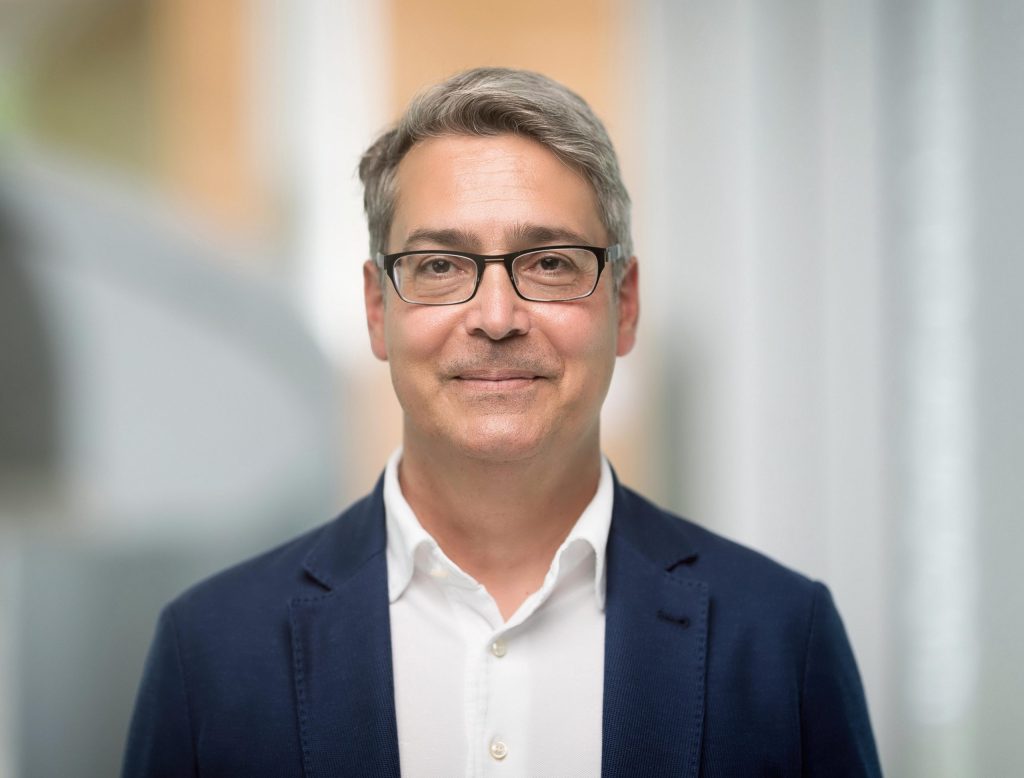The SHS Senior Advisors: Prof. Dr. med. Marc O. Schurr

Here we introduce you to the SHS senior advisors. The experience of these experts plays an important role for us in the investment process and benefits not least our portfolio companies.
Prof. Dr. med. Marc O. Schurr has been Senior Advisor to SHS since 2020. A graduate in human medicine, he is the founder and CEO of Ovesco Endoscopy AG in Tübingen and Managing Director of novineon Healthcare Technology Partners GmbH. In academia, he is Director of the IHCI Institute at Steinbeis University Berlin and Professor of Experimental Medicine and Medical Technology there.
Professor Schurr, what made you decide to work in the medical technology industry and what attracts you to your job as Senior Advisor at SHS?
As early as my medical studies, I was fascinated by the importance of medical technology innovation for progress in clinical medicine. In the 1990s, this was primarily the development of minimally invasive therapy, which would not have been possible without novel technology. At that time, I joined the research group of my future boss, Prof. Dr. Gerhard Bueß, early in my studies, did a lot of research in this field and then, with a somewhat broader thematic focus, made this the focus of my entrepreneurial activities. Today, it is still the wish of patients and doctors to reduce the burden of surgical interventions. Providing the technology to do this continues to offer great entrepreneurial opportunities. I therefore find it exciting to support SHS as a Senior Advisor. I am particularly fascinated by the role of innovation in gaining competitive advantage: an important success factor for medical technology companies, including SHS portfolio companies.
What trends do you see in the medical technology/healthcare industry over the next five years?
Medical technology is a very heterogeneous industry that is highly segmented; there are very different trends and imponderables. But we do see a few overriding driving factors. These include the aforementioned trend towards further reducing invasiveness in treatment. In the medium term, we will therefore also see the conversion of previously surgical interventions into interventional ones, for example catheter- or endoscope-based interventions – with a wealth of new products. Without a doubt, machine learning and artificial intelligence will also play an increasing role, from image diagnosis to logistics and workflows in hospitals. I also continue to expect a lot from medical robotics.
What are the future challenges for the medical technology/healthcare industry, and what role do you see for SHS here?
Here, too, each segment and each player has very different things to deal with. What is currently a central problem for the entire industry is the enormous amount of work that is being created by the new EU Medical Device Regulation (MDR). This is an incredible time-suck for companies and can lead to a shift in resources away from clinically needed innovation and towards unproductive bureaucracy. The massive increase in regulatory costs will also come with price increases that are now coming to the healthcare sector. The political mistakes made with the MDR affect Europe as a medical technology location as a whole. Clinicians are already complaining about the discontinuation of products that companies have abandoned as uneconomical because of the MDR. What can SHS do here? Keep an open ear for the regulatory challenges of the portfolio companies and actively support them.